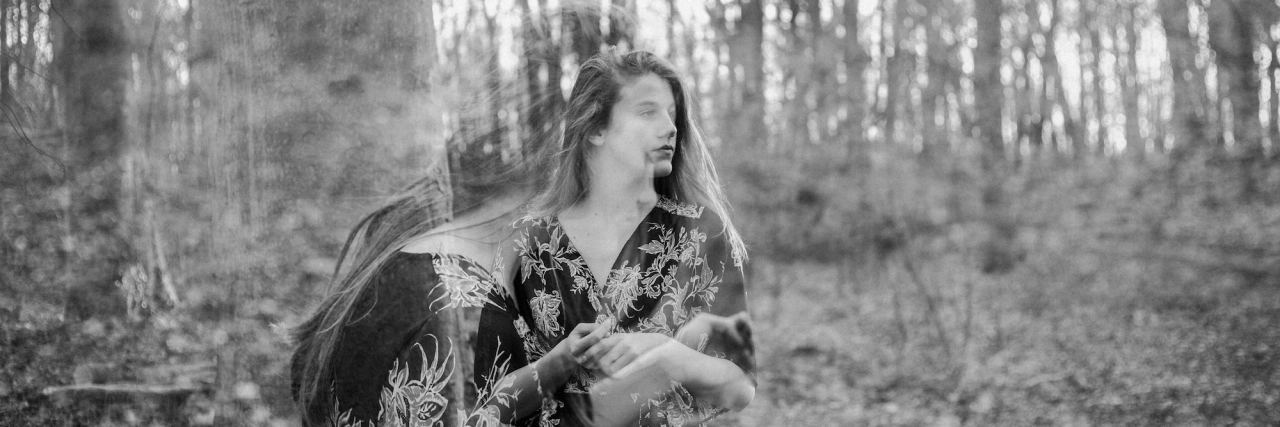Life during depression is a beast all in its own league, and it deserves every bit of awareness, support and investment in resources.
As time passes, I’m discovering life after depression has its own unique challenges as well — and unlike periods of depression, this odd period of transition seems to fly under people’s radar, even among the best of Google searches.
Though I would choose the current difficulties of life any day over the darkness of depression, today’s difficulties are still, well, difficult. As I process through these challenges, here’s what I’m finding:
1. Coming out of depression, though lovely, is still a transition.
Transitions can be hard. Change brings about growth, and growth can be painful. Even though this change was desperately anticipated — and even though this pain seems minimal compared to the throes of hopelessness — I am still experiencing growing pains.
I’m like a bear crawling out of hibernation who meets the bright sun as if for the first time, squinting his eyes and momentarily shell-shocked at the change of environment.
Like Mr. Bear, I’m reaclimating to my surroundings. Suddenly filled with long-lost energy and motivation, I’m relearning what my capacity is and how to draw boundaries. Some days, like a bear cub, I play excessively out of pure joy and then collapse into a heap for a day or two.
It’s all part of the transition.
2. I lived with depression for a long time, and it feels odd — even intimidating at times — to be without it.
It was off and on, but the struggle with depression spanned my entire adult life until this year. At first I was afraid to confess my happiness aloud because I was afraid the sacred emotion would vanish. Even now, a tinge of hesitancy lingers.
Like a sparrow with a recently mended wing, I’m timid at first to launch into blissful flight. The delicate bird recalls the days of soaring in the wind, but the memory of falling sounds off the alarms in her head.
Like Ms. Sparrow, I doubt my abilities and question any sense of confidence. With time and with courage, this fear will pass. For now, I still face it every day.
3. Sometimes I’m still sad. Some days I even feel depressed again.
The arrival of days reminiscent of depression remind me self-care regimens are most effective when promoting wellness, not “curing” me.
Grace and permission to struggle are granted often enough to keep the perfectionism at bay. My bed receives enough quality time to even out my mood — and to make eyes widen and mouths gape. My therapist’s office is still warmed by my presence. Recovery is gradual.
I’m like a baby sea turtle hatching from an egg buried in the sand. He undertakes the arduous trek across the beach and finally reaches the water. But even as the tide pulls him forward into the ocean, waves lapping up against the shore push him back momentarily before he can move forward again.
Like the baby sea turtle, I progress slowly, not in a neat, linear way but in zig-zags, lurches and pauses. Sometimes processes cannot be quantified nor journeys predicted.
Nevertheless, they can be one of the most important things ever to happen to a baby sea turtle. Or to me.
4. Part of my sadness involves grieving the past times of depression.
We grieve because of loss. Depression brings loss. It brings the loss of happiness all those years. It brings the loss of truth believed about myself — truth of worthiness of life and love and much, much more.
Even elephants grieve. When they return to a site of a herd member’s death, they pause to grieve and remember. I grieve through tears and art and writing this.
Like elephants, I cannot forget. The impact of depression is stamped in the past. I never want to relive it, nor do I desire to dwell on it. But I will acknowledge it and honor the season of immense pain and suffering.
To dismiss it would be to spurn not only the struggle but also the victory.
5. Depression may have ended, but it hasn’t been erased from my past.
This is a misunderstood part of recovery. I’m still trying to figure it out myself. No physical mark mars my body, but scars on my heart are certainly present. It’s easier to hide the season of sorrow now because it isn’t the daily donning of a mask. It’s a passive choice not to reveal the words stamped on earlier pages.
Yet these scars on my heart are not blemishes. They are part of my story, and my story is beautiful in its own right. Without them, I wouldn’t be who I am now.
How depression fits into my story, what part of my story I’m living now and where my story will go—these are all in the works.
Like every human, I’m still making sense of yesterday and today and tomorrow. It’s all part of life after depression.
Follow this journey here.
We want to hear your story. Become a Mighty contributor here.
Unsplash photo via Joyce Huis

